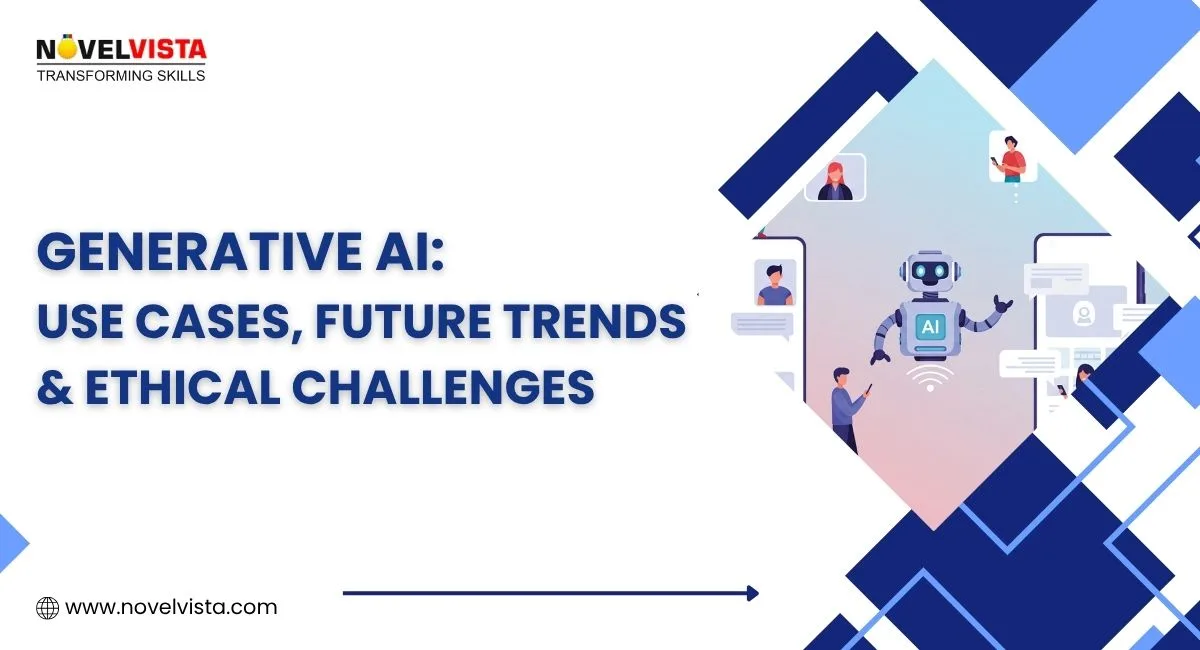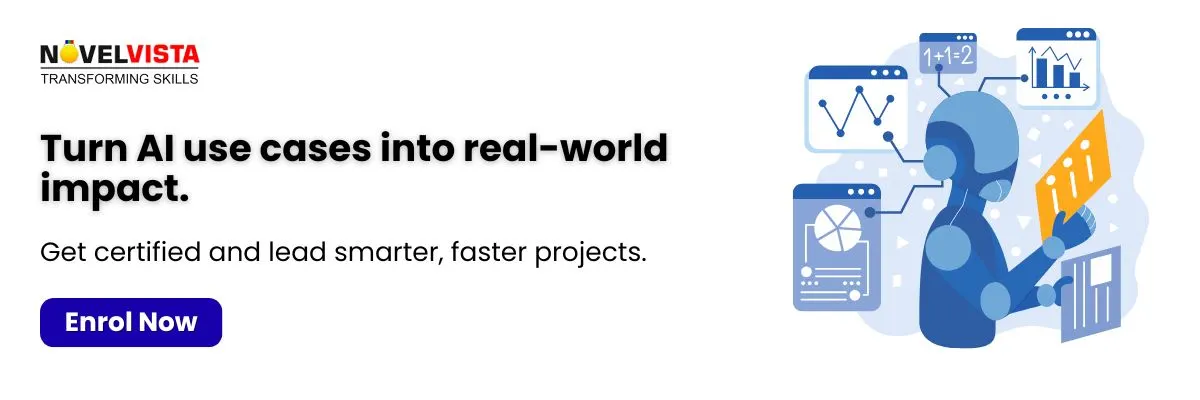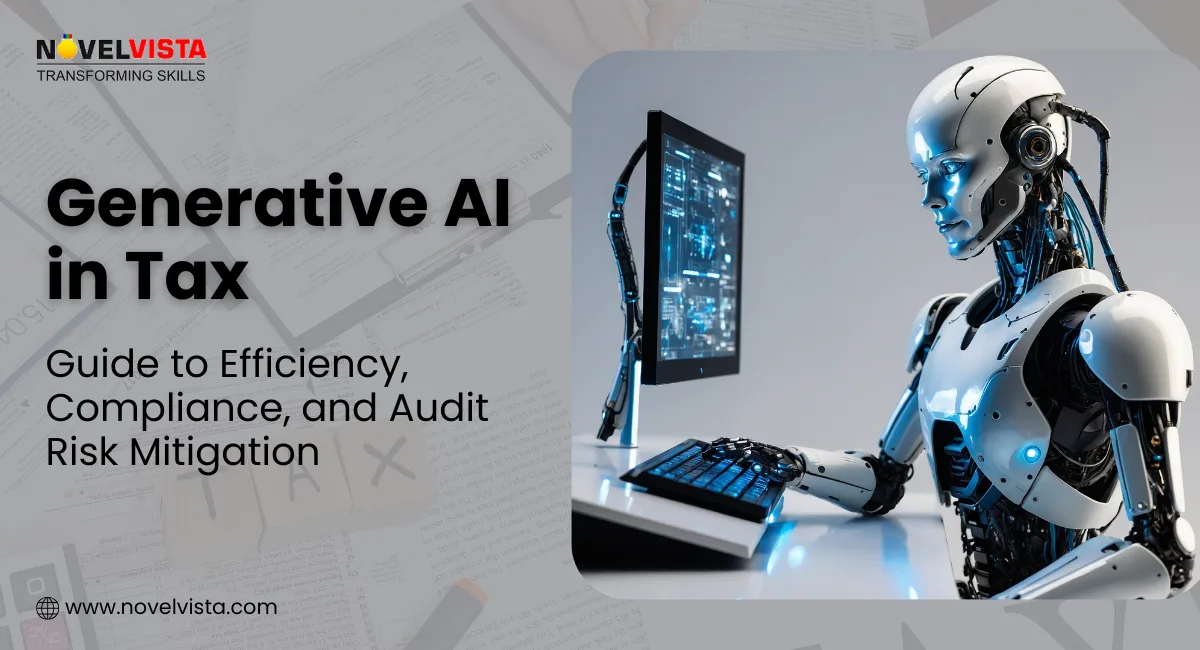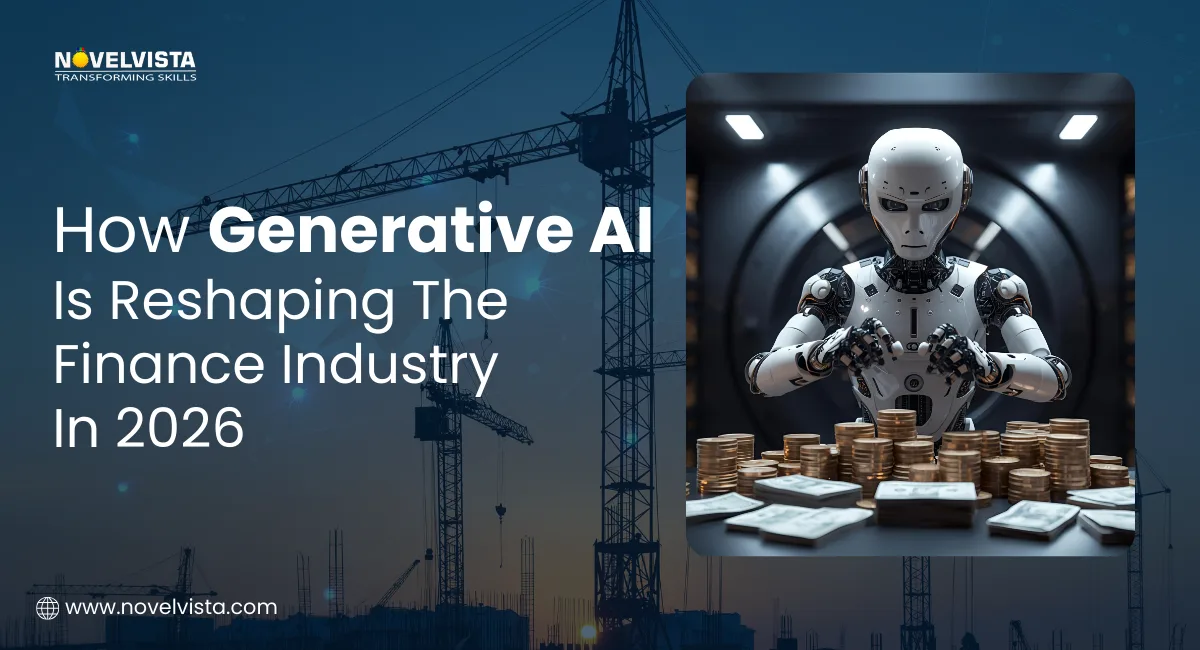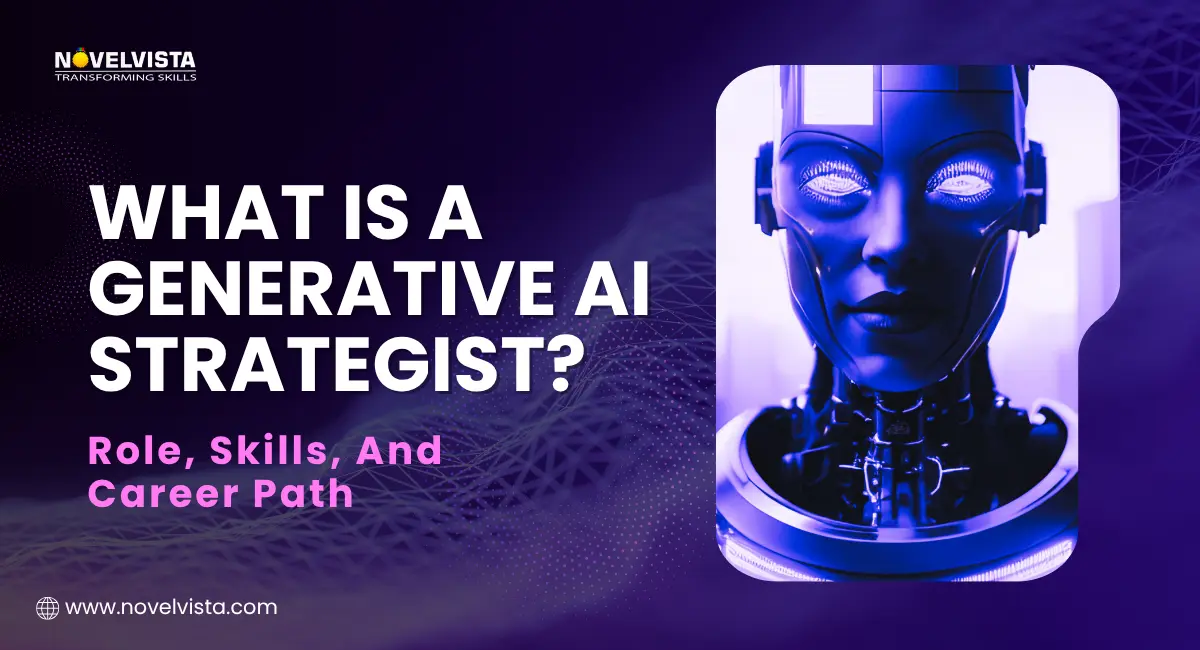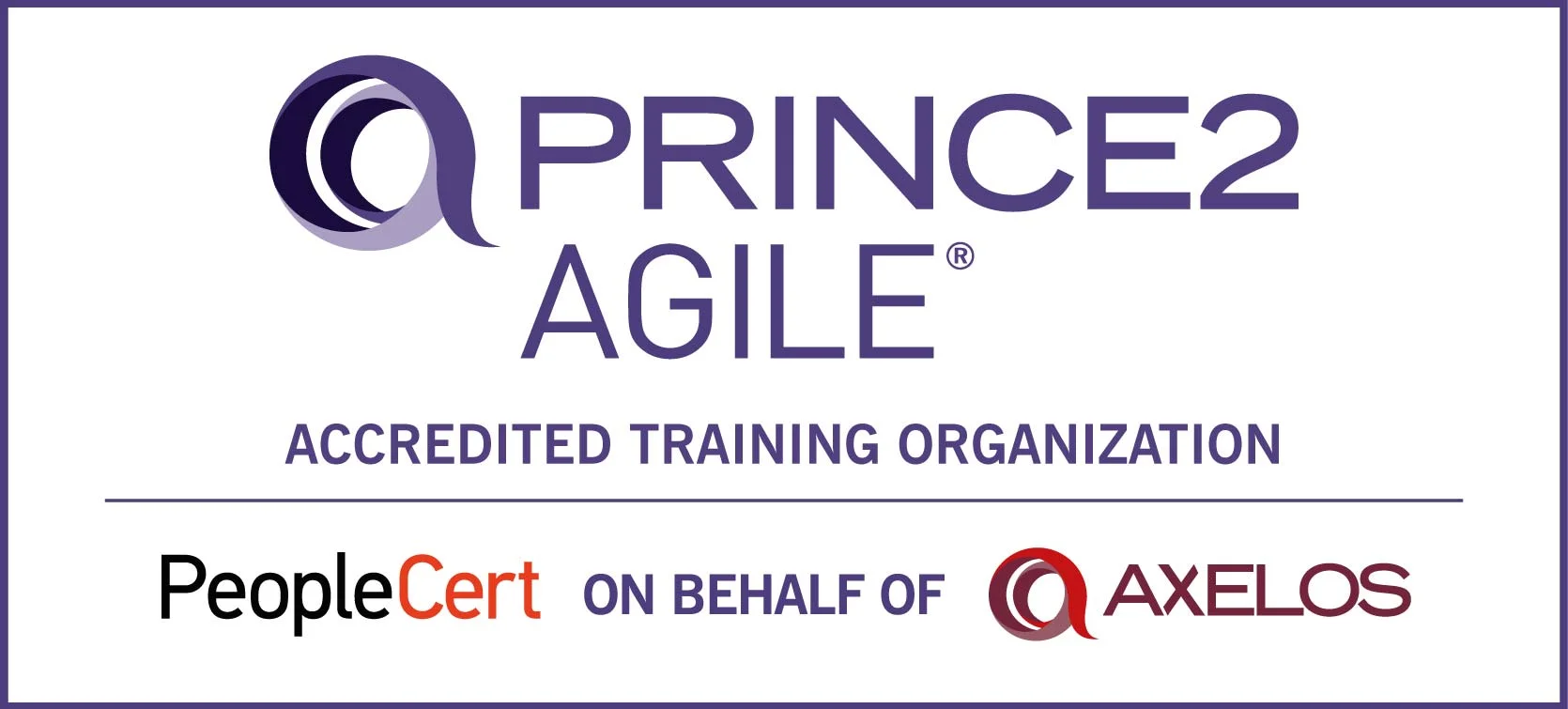As the potential of generative AI explodes, so does the need for understanding generative AI use cases, future trends, and ethical challenges. Generative AI is taking the world by storm. What was once considered science fiction is now a reality. AI tools like GPT-4, DALL-E, and MidJourney are becoming indispensable for businesses across the globe.
Now more than ever, professionals and businesses must keep up with how generative AI is reshaping industries and impacting our daily lives. Understanding its scope and future applications can help you stay ahead of the curve in this AI-driven world.
What is Generative AI?
Generative AI refers to a subset of artificial intelligence that can create new content, whether it's text, images, music, video, or even code, by learning patterns and structures from large datasets. Instead of just analyzing data, generative AI can produce creative outputs that resemble human-created work, but in a fraction of the time.
For instance, tools like ChatGPT can generate human-like text based on prompts, while DALL-E creates original images from descriptive text. These models are trained on massive datasets, which enable them to produce outputs that are surprisingly accurate and creative.
Want a deeper dive? Check out our full blog on What is Generative AI and How it Works.Top Generative AI Use Cases by Industry
Generative AI is transforming industries by Generative AI streamlining the Procurement Process, enhancing creativity, and delivering value in ways that weren’t possible before. Let’s take a look at how it’s making an impact across various sectors:
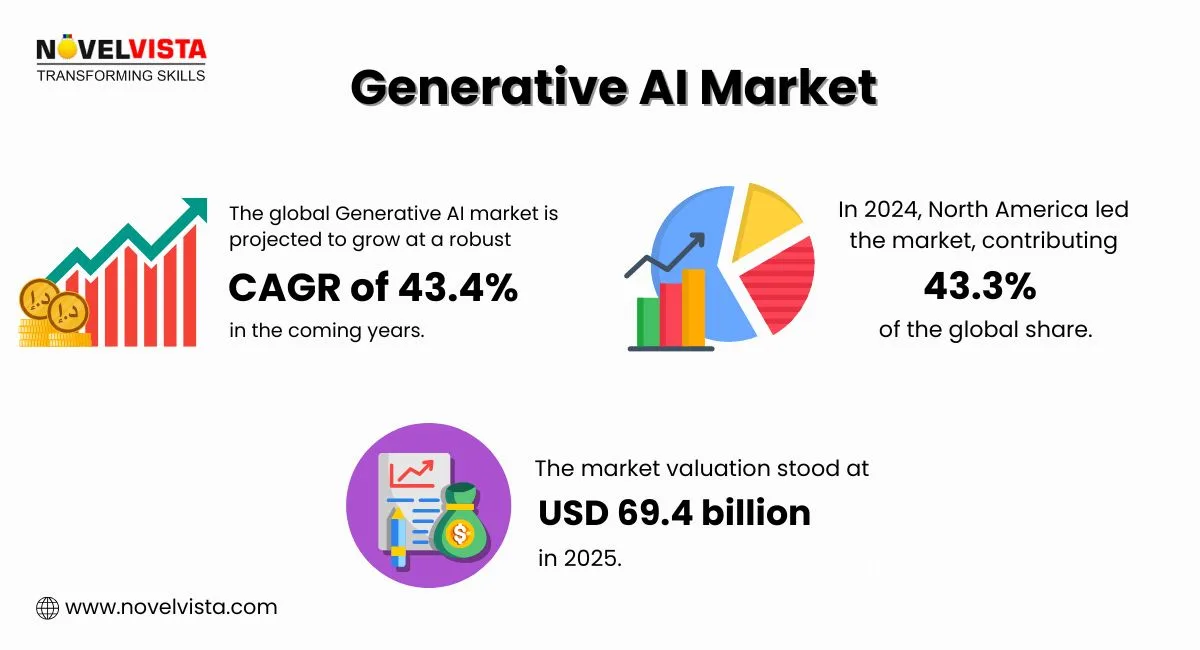
a. Automotive & Logistics
Generative AI is revolutionizing the automotive and logistics industries with innovations like:
- AI-Generated Simulations: Engineers use AI to simulate vehicle performance, predict potential failures, and optimize designs faster than traditional methods.
- Predictive Supply Chain: By analyzing vast amounts of data, generative AI helps predict supply chain disruptions and optimize logistics, saving both time and cost.
- Route Optimization & Dynamic Delivery Planning: AI generates the best possible routes for deliveries, considering factors like traffic, weather, and package weight, which results in faster, more efficient deliveries.
b. Business & Professional Services
In business and professional services, Generative AI use cases are helping streamline tasks that were once time-consuming:
- Content Generation: AI tools create high-quality content for blogs, social media posts, and newsletters, helping businesses scale content production without compromising quality.
- Virtual Assistants: AI-powered virtual assistants can handle scheduling, emails, and customer service, freeing up time for employees to focus on higher-level tasks.
- Document Automation: Legal firms, financial institutions, and consulting businesses use generative AI to draft reports, client proposals, and even legal documents, automating routine tasks and reducing human error.
c. Healthcare & Life Sciences
Generative AI is playing a pivotal role in revolutionizing healthcare:
- Drug Discovery: AI models analyze medical research data and predict promising new drug compounds, speeding up the process of finding cures.
- Synthetic Medical Imaging: Generative AI generates realistic medical images for training purposes or helps fill in gaps in incomplete scans, improving diagnostic accuracy.
- Patient Interaction Bots: Healthcare providers use AI-driven chatbots to engage with patients, providing instant feedback on symptoms, medication advice, and appointment scheduling.
d. Education & Training
Generative AI use cases are transforming education by creating more personalized and efficient learning experiences.
- Personalized Learning Materials: AI can generate customized study materials based on a student’s progress, learning style, and areas of improvement.
- AI Tutors: These AI systems offer one-on-one tutoring, providing instant feedback and helping students with topics they may struggle with.
- AI-Powered Assessments & Feedback: Generative AI tools automatically generate quizzes, assignments, and exams, offering personalized feedback based on student responses.
e. Media & Entertainment
The media and entertainment industry is benefiting from generative AI in groundbreaking ways:
- Scriptwriting & Music Generation: AI tools can generate scripts, stories, and even musical compositions, helping writers and composers brainstorm ideas and create drafts quickly.
- Deepfake Technology: While controversial, deepfake technology, powered by generative AI, is being used to create hyper-realistic videos and recreate actors in films, opening up new possibilities in visual storytelling.
- Video Creation: AI tools automatically generate video content, including animations and interactive videos, based on simple text prompts or existing assets, allowing creators to produce content at scale.
The Future of Generative AI What’s Coming Next?
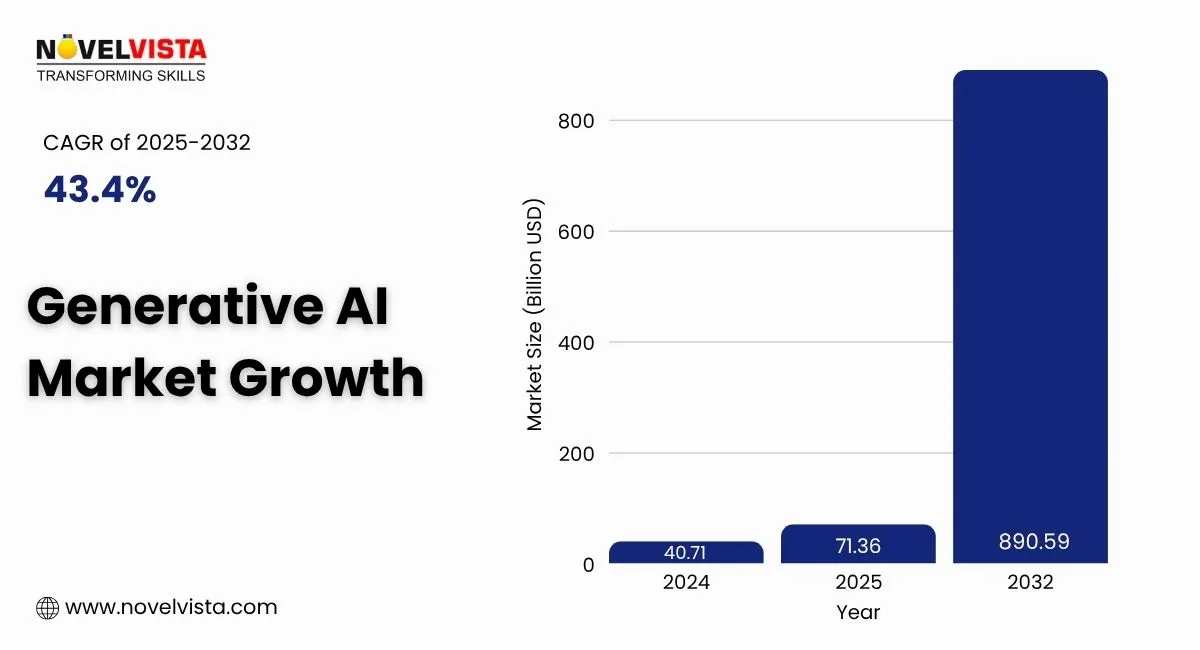
Generative AI’s journey is just beginning, and the future of Generative AI is incredibly promising. Experts predict that the market for generative AI will exceed $100 billion by 2030, as more industries and businesses begin to adopt it for creative, analytical, and operational tasks. Here are a few ways generative AI will continue to shape the future:
- Role in Job Evolution: As generative AI takes on more creative and repetitive tasks, jobs in fields like content creation, design, and coding will evolve. New roles will emerge that focus on managing and guiding AI tools, rather than just creating content.
- Business Models: AI will continue to disrupt traditional business models, especially by enabling more personalized and efficient services. Companies that leverage AI will have a competitive edge in terms of speed, cost-efficiency, and innovation.
- Global Economies: As AI technology becomes more widespread, it will play a significant role in the global economy, enhancing productivity and creating new industries and markets. Generative AI will drive economic growth by empowering industries to do more with less.
- AI in Governance, Smart Cities, and Decision-Making: Generative AI will increasingly play a role in governance, from automating public services to enabling smart cities. It will help governments and organizations make data-driven decisions that benefit citizens, businesses, and communities.
Ethical and Implementation Challenges of Generative AI
With great power comes great responsibility. As generative AI use cases continuously increase across various sectors, they bring with them a range of ethical and implementation challenges that must be addressed for responsible use. Here are some of the most significant concerns:
- Deepfake Misuse and Misinformation: Generative AI’s ability to create realistic videos and audio recordings raises the risk of deepfakes being used maliciously. Fake videos, manipulated audio clips, and misleading news reports can undermine trust in media and cause significant harm to individuals, organizations, and even political stability.
- Data Privacy and Ownership Concerns: Generative AI relies heavily on large datasets, which often include personal data. This raises important questions about who owns the data, how it’s used, and how to ensure that users’ privacy is protected. In some cases, data used to train generative AI models can be scraped from the internet without permission, leading to potential violations of privacy.
- AI Bias and Fairness Issues: Like all AI systems, generative AI models can inherit biases from the data they are trained on. If these biases are not addressed, AI-generated content could perpetuate stereotypes or unfairly favor certain groups over others. Ensuring fairness and reducing bias is crucial in maintaining the ethical use of AI.
- Intellectual Property and Copyright Concerns: As generative AI creates new content, questions arise around copyright ownership. Who owns the rights to AI-generated music, art, or writing? Should the AI model be credited, or the developers who trained it? This complex issue requires clear policies and legal frameworks to protect creators’ intellectual property while fostering innovation.
- Dependency and Workforce Displacement: As generative AI takes over more creative tasks, there’s a risk of workforce displacement. Jobs in content creation, design, and other creative fields could be at risk as AI automates these tasks. It’s important to manage this shift by upskilling workers and helping them transition into new roles that involve working alongside AI.
- Transparency and Accountability Gaps: Many generative AI systems operate as “black boxes,” meaning their decision-making process isn’t always clear. This lack of transparency makes it difficult to understand how certain outputs are generated, raising questions about accountability. Developers and organizations must prioritize explainability and transparency in AI systems to ensure responsible use.
AI Era Skills Guide for 2026
Don’t get left behind. Learn the must-have skills companies like Google, Microsoft, etc. search for
Final Takeaway
Generative AI is undoubtedly one of the most powerful technologies of our time, resulting in an increased number of generative AI use cases across different industries. It’s transforming industries, enhancing creativity, and streamlining processes in ways that were once unimaginable. But with its power comes the responsibility to use it ethically and thoughtfully. Addressing challenges like deepfakes, data privacy, bias, and workforce displacement is crucial to ensure that generative AI benefits everyone.
As professionals, it’s important to explore and understand generative AI’s capabilities while also acknowledging the ethical implications of its use. By doing so, we can harness its power to drive innovation, enhance creativity, and solve real-world problems, all while navigating the challenges it presents.
Next Step: Master Generative AI with Expert-Led Certification
If you’re looking to dive deeper into generative AI and gain practical knowledge on its applications, NovelVista offers a comprehensive Generative AI Professional Certification.
This course covers everything from use cases to ethical considerations, providing hands-on experience with AI tools and real-world applications. With expert mentoring and a structured learning path, you’ll be well-equipped to harness the power of generative AI in your professional journey.
Frequently Asked Questions
Content Creation:Automate the generation of text, images, videos, and music.
Data Augmentation: Enhance datasets for training machine learning models.
Product Design: Assist in designing prototypes and simulations.
Personalization: Tailor recommendations and user experiences.
Automation: Streamline repetitive tasks across various sectors.
Healthcare: Drug discovery, medical imaging analysis.
Entertainment: Content creation, game development.
Finance: Algorithmic trading, risk assessment.
Marketing: Ad copy generation, customer insights.
Manufacturing: Design optimization, predictive maintenance.
These foundations and applications of generative ai are transforming industries by enhancing efficiency and innovation.
Educational Foundation: Obtain a bachelor's degree in computer science, data science, or a related field.
Technical Skills: Gain proficiency in programming languages like Python and R, and familiarize yourself with machine learning frameworks such as TensorFlow and PyTorch.
Hands-On Experience: Engage in projects involving generative models like GANs, VAEs, and transformers.
Advanced Learning: Consider certifications or advanced degrees specializing in generative AI.
Stay Updated: Continuously learn about the latest advancements and ethical considerations in the field.
By following this pathway, you can build a solid foundation and expertise in generative AI.
Author Details

Akshad Modi
AI Architect
An AI Architect plays a crucial role in designing scalable AI solutions, integrating machine learning and advanced technologies to solve business challenges and drive innovation in digital transformation strategies.
Course Related To This blog
Generative AI in Risk & Compliance
Generative AI in Retail
Generative AI in Finance and Banking
Generative AI for HR and L&D
Generative AI in Cybersecurity
Generative AI in Business
Confused About Certification?
Get Free Consultation Call

